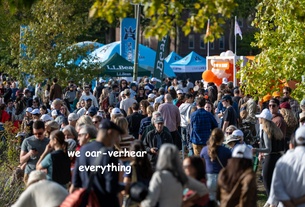“Policy is great for policy's sake, but we need to be thinking about...how we can make our community safer and make it clear to everyone in the community that these are our beliefs and this is the kind of community we want to live in,” said Anaya, who is also a member of the sexual assault task force convened by Faust in April.
{shortcode-e1079f3da4e42449e96aa3ff7a3175fb1af6a03e}
Emily M. Fox-Penner ’17, a lead complainant on the complaint filed by undergraduates in April, and other activists agree and add that the University should do more to effect change in that culture than they do now. In other words, she said that policy and culture are “mutually reinforcing.”
For example, recommendations by University officials and police that students walk carefully or wear certain clothing—suggestions that would more broadly be characterized as risk reduction factors—can place undue responsibility on victims, Fox-Penner said.
Alicia Oeser, director of OSAPR, notes that there is “definitely” a culture of victim blaming at Harvard and nationwide.
Although Anaya agrees that it is important for schools to redress their policies, he likewise said that the broader conversation about the culture behind sexual assault will require more than policy changes.
THE ‘CULTURE PROBLEM’
Jack C. Smith ’15 first heard about Harvard Men Against Rape, a subdivision of OSAPR, from upperclassmen members of Sigma Chi when he rushed the fraternity in the fall of his freshman year.
Through his experiences as a member of HMAR, a group that aims to foster an open dialogue among males about sexual violence and how it affects their own lives, Smith said he has realized the importance of male involvement in changing the culture around sexual violence.
“The ‘culture problem’ as I see it can best be summed up by the fact that, although we know that a very small number of men commit the vast majority of rapes on campuses, they still largely act with impunity,” Smith wrote in an email.
Organizers from Our Harvard Can Do Better emphasize the power dynamics at play in exclusive social spaces such as final clubs, saying that regardless of where students choose to go on campus, they have the right to be safe.
Despite attempts to contact all presidents of male final clubs, each either declined to comment or was unreachable.
{shortcode-4487d907a0536664efa210e119e9b48ffc777516}
Sharon L. Howell, outgoing resident dean of Adams House, said that the power dynamics at play on campus mirror the “larger culture” in which Harvard is embedded.
“I think it’s disappointing that there is still so much power imbalance in the social scene,” she said. “As someone who deals with student issues regularly, that’s very clear to me.”


